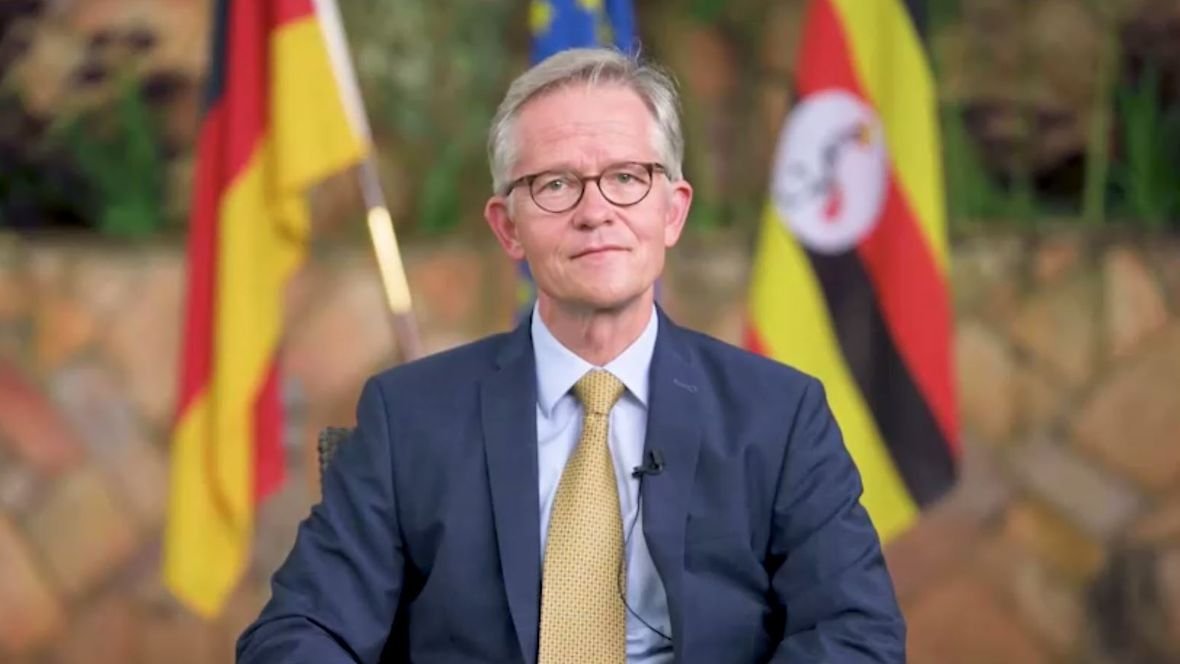KAMPALA, Uganda — Germany has refuted Uganda’s accusation that its ambassador was involved in “subversive activities,” labeling the claim as “absurd and baseless.”
Speaking at a press conference in Berlin on Monday, Kathrin Deschauer, a spokesperson for the German Federal Foreign Office, clarified that there was no formalized military cooperation between Germany and Uganda.
This response follows the Ugandan military’s announcement on Sunday that it had suspended all defense and military cooperation with Germany.
What are Uganda’s allegations against the German ambassador?
Uganda has announced the immediate suspension of all defense and military cooperation with Germany, citing “credible intelligence reports” that the German Ambassador to Uganda, Matthias Schauer, was “actively engaged in subversive activities” within the country, according to an X post published Sunday by Ugandan military spokesperson Chris Magezi.
“The Uganda People’s Defence Forces has with immediate effect suspended all ongoing defence and military cooperation activities with the Federal Republic of Germany,” Magezi stated.
Deschauer stated that Germany was unaware of any context or background that could elucidate such allegations.
This development occurs amidst escalating tensions between Uganda and the European Union. Notably, Ugandan troops are part of an African Union peacekeeping force in Somalia, a mission that receives partial funding from the EU.
What is the political situation in Uganda?
Earlier in the month, Ugandan military chief Muhoozi Kainerugaba, son of President Yoweri Museveni and a likely successor to the long-serving leader, issued a warning to the EU, stating they were “playing with fire.” This followed a meeting between European diplomats and senior members of the National Unity Platform (NUP) opposition party, including its leader, Bobi Wine.
Bobi Wine, a former popular musician turned politician, has been repeatedly placed under house arrest by Ugandan authorities. Another prominent opposition figure, Kizza Besigye of the Forum for Democratic Change (FDC), was imprisoned in November.
In August of the previous year, 36 FDC members were charged with terrorism, an accusation that rights groups denounced as politically motivated.
Uganda has also faced significant criticism from Western governments and human rights organizations regarding its 2023 anti-homosexuality law, which imposes severe penalties, including life imprisonment for consensual same-sex relations and the potential for the death penalty for “aggravated homosexuality.”

